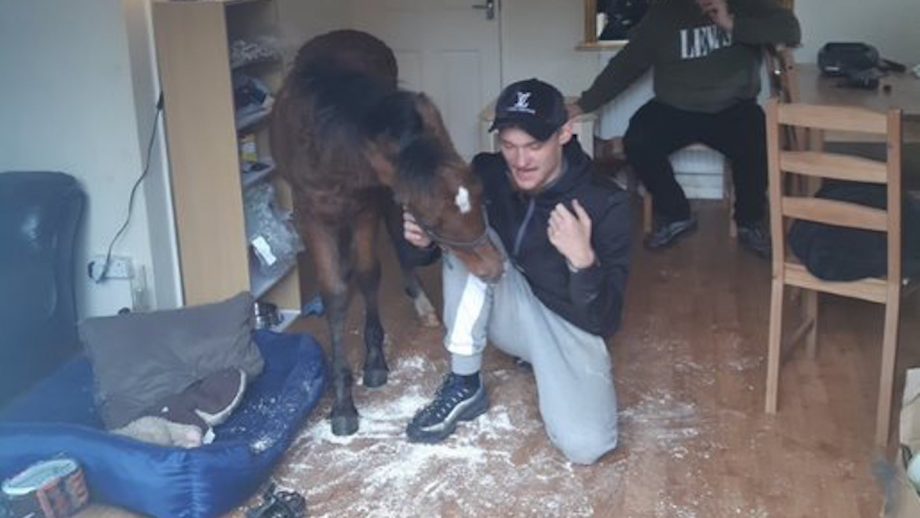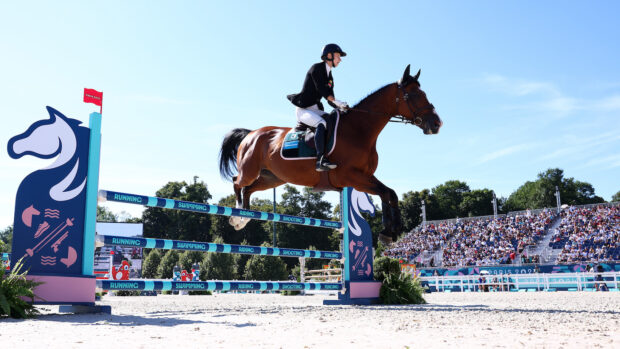The first case has been confirmed in a thoroughbred of fragile foal syndrome, a fatal condition previously thought only to affect warmbloods.
A study by the Royal Veterinary College (RVC) with the University of California Davis Veterinary Genetics Laboratory (VGL) and Rossdales Laboratories, Newmarket, recommended the disorder be renamed from warmblood fragile foal syndrome.
Foals with the connective tissue disorder, which is caused by a DNA change in the PLOD1 gene, are usually born with extensive lesions caused by very thin, fragile skin, and musculoskeletal abnormalities. These mean they are typically aborted or stillborn, or have to be put down shortly after birth.
The condition had been associated with warmblood horses but having identified the change in DNA in the PLOD1 gene in other breeds, Rebecca Bellone and her team at VGL approached the RVC equine pregnancy laboratory to screen for the condition in its bank of cases of pregnancy loss.
A thoroughbred foal who was put down owing to multiple skin lesions was tested and it was found that the PLOD1 variant was the likely cause of its condition. This is the first documented evidence of fragile foal syndrome caused by the PLOD1 variant in a breed other than a warmblood.
The study, published in the Equine Veterinary Journal, recommends renaming the disorder to reflect its findings, and to “ensure appropriate use of testing methods”. It highlights the importance of genetic testing for the disorder in breeds that carry the gene mutation to inform breeding decisions and avoid producing affected foals. The disorder is recessive, so foals will only be affected if they have two copies of the gene mutation – one from the dam and one from the sire.
RVC PhD student Jessica Roach said: “Pregnancy loss, stillbirth and neonatal death remain an important source of reproductive losses for horse breeders worldwide. Over the course of my PhD we have collated a large biobank of tissue and data from late term pregnancy losses through the generous co-operation of UK and Ireland thoroughbred stud farms and Rossdales Laboratories, Newmarket. This has allowed us to explore the risk factors and pathology of many different causes of abortion and stillbirth.
“The collaboration with UC Davis and Lexi Grillos provided a fantastic opportunity to explore fragile foal syndrome in our thoroughbred population and identify the first affected thoroughbred individual. Whilst clearly a distressing condition for affected foals and their owners, the good news is that this lethal syndrome can be avoided with testing and careful mating selection.”
You might also be interested in:

Sick foal found in owner’s living room highlights issues of buying and selling unseen
“The new owners had bought Humphrey unseen and admitted they didn’t realise what looking after a horse fully entailed”

Future perfect? The possible ethical issues of genetic technology *H&H Plus*
Genetic technology offers us the potential to beat equine disease and boost performance, but how far should we go? Dr

Subscribe to Horse & Hound magazine today – and enjoy unlimited website access all year round
Horse & Hound magazine, out every Thursday, is packed with all the latest news and reports, as well as interviews, specials, nostalgia, vet and training advice. Find how you can enjoy the magazine delivered to your door every week, plus options to upgrade your subscription to access our online service that brings you breaking news and reports as well as other benefits.




